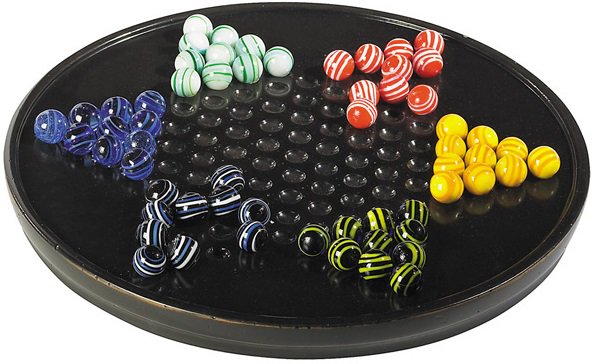Germany invented chinese checkers the name chinese checkers began in the united states as a marketing ploy but the game is neither chinese nor a version of checkers

Germany Invented Chinese Checkers
Chinese checkers, a beloved classic board game enjoyed by people all around the world, is actually not Chinese at all. In fact, it originated in Germany and was initially known as “Stern-Halma.” The game’s intriguing history reveals a fascinating journey and how its name was cleverly coined as a marketing ploy in the United States.

In the late 19th century, a German game manufacturer named Ravensburger developed the game we now know as Chinese checkers. The objective of the game was to move a set of marbles across a star-shaped board from one triangle to another. Despite its German roots, the game gained popularity in Europe and later caught the attention of American toy companies.
In the 1920s, several toy manufacturers in the United States decided to introduce Stern-Halma to the American market. To make the game more appealing, they sought a catchier name that would capture people’s attention. Drawing upon the popularity of Chinese culture and the growing fascination with Chinese games at the time, they cleverly renamed Stern-Halma as “Chinese checkers.”

Using the term “Chinese” in the name was a clever marketing strategy. The Chinese culture was seen as exotic and mysterious, and associating the game with China added an air of intrigue. The new name quickly caught on, and Chinese checkers became a hit among American consumers.
However, it is important to note that Chinese checkers is neither Chinese in origin nor a variant of the traditional game of checkers. The game does not share the same rules or gameplay as checkers. Chinese checkers is a unique game in its own right, with its distinctive star-shaped board and the goal of moving marbles strategically across the triangles.
Despite its misnomer, Chinese checkers has become a classic and beloved game worldwide. Its simple yet engaging gameplay appeals to players of all ages. Whether played with friends or family, Chinese checkers continues to provide hours of fun and excitement.
So, the next time you gather around a Chinese checkers board, remember its German origins and the clever marketing ploy that gave it its catchy name. Enjoy the game, appreciate its intriguing history, and let the marbles roll across the star-shaped board, regardless of its not-so-Chinese roots.
Tags
Share
Related Posts
Quick Links
Legal Stuff

